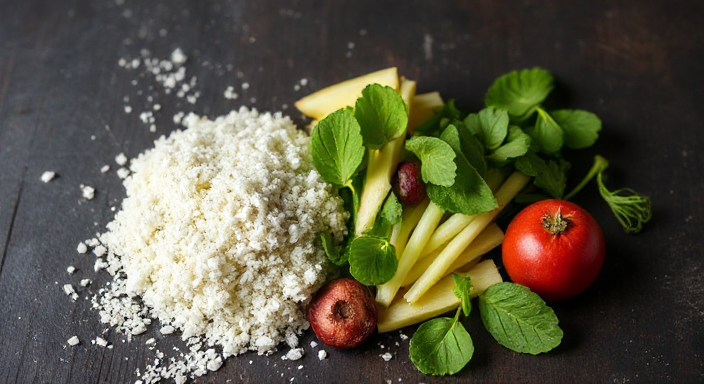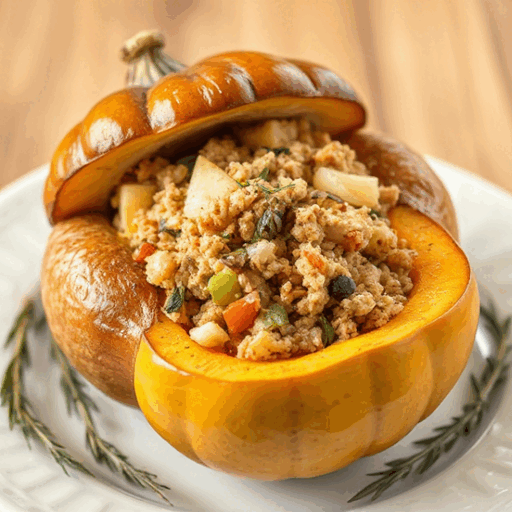What are the Collagen-rich foods?
Collagen is a body-produced fibrillar protein that gives elasticity and…

Zinc is one of those powerhouse minerals that quietly supports nearly every function in your body. From strengthening your immune system to promoting glowing skin, it’s an essential nutrient your body can’t do without. Since the body doesn’t store zinc, it’s important to get a steady supply through your diet. Fortunately, nature offers plenty of plant-based sources of zinc that fit perfectly into a balanced, anti-inflammatory lifestyle.
Let’s take a closer look at how zinc-rich foods can enhance your health and the best sources to include in your daily routine.
Strengthens the Immune System
Zinc is a vital mineral for immune function, helping your body produce white blood cells and fight off infections. It’s especially effective in shortening the duration of colds and boosting defenses against illness.
How It Works:
Supports the production of T-cells, which are critical for immune response.
Enhances wound healing, making it easier for the body to recover from cuts, scrapes, and injuries.
Protects cells from oxidative stress and inflammation, reducing the risk of chronic illnesses.
Zinc-Rich Foods to Try:
Pumpkin Seeds: Snack on roasted pumpkin seeds for a quick immune boost.
Cashews: Add a handful to salads or trail mix to increase zinc intake.
Pro Tip: Pair zinc-rich foods with sources of vitamin C, like citrus fruits, to enhance absorption.
Promotes Healthy Skin and Hair
Zinc plays a vital role in maintaining clear, healthy skin and strong hair. It regulates oil production, reduces inflammation, and supports the repair of skin tissues.
How It Works:
Clears Acne: Reduces bacteria and inflammation associated with breakouts.
Heals Skin Damage: Speeds up wound healing and minimizes scarring.
Strengthens Hair Follicles: Encourages hair growth by nourishing the scalp and improving circulation.
Zinc-Rich Foods to Try:
Lentils: Toss into soups or salads for a plant-based protein and zinc boost.
Hemp Seeds: Sprinkle on smoothies or oatmeal for an extra dose of skin-loving nutrients.
Pro Tip: Combine zinc with foods high in omega-3s, like walnuts and flaxseeds, to double the benefits for skin and hair health.
Supports Hormonal Balance and Fertility
Zinc is a key nutrient for hormone regulation, including insulin, thyroid hormones, and reproductive hormones. It supports fertility in both men and women and helps maintain a healthy metabolism.
How It Works:
Regulates Hormones: Keeps estrogen and progesterone levels balanced.
Boosts Fertility: Improves sperm quality and egg health.
Manages Blood Sugar: Supports insulin production and stabilizes energy levels.
Zinc-Rich Foods to Try:
Quinoa: Use as a base for grain bowls or salads to balance blood sugar and hormones.
Chickpeas: Mash into hummus or add to curries for plant-based zinc and protein.
Pro Tip: Zinc works best when combined with magnesium-rich foods like spinach and almonds to support hormone balance.
Enhances Cognitive Function and Focus
Zinc isn’t just for the body—it’s also essential for brain health. It supports memory, learning, and focus by influencing neurotransmitter activity and protecting neurons.
How It Works:
Boosts Brain Function: Zinc helps maintain communication between neurons, improving mental clarity and concentration.
Reduces Brain Fog: Acts as an antioxidant, protecting the brain from oxidative stress.
Improves Mood: Supports serotonin and dopamine production to stabilize mood and reduce anxiety.
Zinc-Rich Foods to Try:
Mushrooms: Add to stir-fries, soups, or salads for a boost in focus and memory.
Peas: Incorporate into soups, stews, or grain bowls to nourish your brain.
Pro Tip: Pair zinc-rich foods with B-vitamin sources, like leafy greens, for better brain and nerve function.
Promotes Digestive Health and Nutrient Absorption
Zinc supports gut health by maintaining the integrity of the intestinal lining and aiding in nutrient absorption. It also reduces inflammation in the digestive tract, helping to ease symptoms of irritable bowel syndrome (IBS) and leaky gut.
How It Works:
Supports Gut Barrier Function: Strengthens the intestinal wall to prevent toxins from leaking into the bloodstream.
Improves Enzyme Production: Helps enzymes break down food, promoting better digestion.
Reduces Inflammation: Calms irritation in the gut lining, easing symptoms like bloating and cramping.
Zinc-Rich Foods to Try:
Kale: Add to smoothies, salads, or sautés for a gut-friendly dose of zinc.
Hemp Seeds: Blend into dressings or sprinkle over roasted veggies for digestive support.
Pro Tip: Combine zinc with probiotic-rich foods, like sauerkraut or kimchi, to maximize gut health benefits.
How to Incorporate Zinc-Rich Foods into Your Diet
Including zinc-rich foods in your daily routine doesn’t have to be complicated. Here are a few ideas:
Smoothies: Blend kale, hemp seeds, and peas into a smoothie for a nutrient-dense breakfast.
Salads: Toss pumpkin seeds, chickpeas, and quinoa into salads for added texture and flavor.
Snacks: Enjoy roasted cashews or lentil hummus as quick, portable snacks.
Soups and Stews: Add mushrooms and lentils to hearty soups for zinc and protein.
Final Thoughts: Small Changes for Big Health Gains
Zinc is a small but mighty mineral that supports immune function, skin health, hormonal balance, brain focus, and digestion. By incorporating zinc-rich foods like pumpkin seeds, cashews, lentils, and kale into your meals, you can nourish your body and mind naturally.
Whether you’re looking to boost immunity, clear your skin, or improve gut health, zinc is an essential part of a balanced, anti-inflammatory lifestyle. Make these foods a staple in your kitchen and feel the difference they bring to your overall well-being.
Collagen is a body-produced fibrillar protein that gives elasticity and…
copyright © 2025 Anti-Inflammatory Approach. All rights reserved. Unauthorized reproduction, distribution, or use of any content, including text, images, recipes, or other materials on this website, is strictly prohibited without prior written permission. This website’s content is provided for informational purposes only and does not constitute medical or professional advice.


This $1 anti-inflammatory cookbook is packed with simple, tasty recipes to reduce inflammation and improve energy. Don’t miss out—get it now on Amazon!